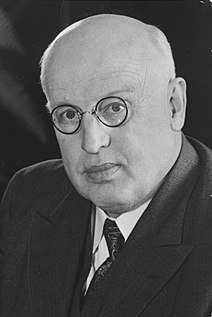| |||||||||||||||||||||||||||||||||||||||||||||||||
75 seats in the Legislative Assembly of Alberta 38 seats were needed for a majority | |||||||||||||||||||||||||||||||||||||||||||||||||
|---|---|---|---|---|---|---|---|---|---|---|---|---|---|---|---|---|---|---|---|---|---|---|---|---|---|---|---|---|---|---|---|---|---|---|---|---|---|---|---|---|---|---|---|---|---|---|---|---|---|
| Turnout | 59.58% | ||||||||||||||||||||||||||||||||||||||||||||||||
| |||||||||||||||||||||||||||||||||||||||||||||||||
 Popular vote by riding. As this is a first-past-the-post election, seat totals are not determined by total popular vote, but instead by results in each riding. | |||||||||||||||||||||||||||||||||||||||||||||||||
| |||||||||||||||||||||||||||||||||||||||||||||||||
The Alberta general election of 1975 was the eighteenth general election for the Province of Alberta, Canada. It was held on March 26, 1975, to elect members of the Legislative Assembly of Alberta.

Alberta is a western province of Canada. With an estimated population of 4,067,175 as of 2016 census, it is Canada's fourth most populous province and the most populous of Canada's three prairie provinces. Its area is about 660,000 square kilometres (250,000 sq mi). Alberta and its neighbour Saskatchewan were districts of the Northwest Territories until they were established as provinces on September 1, 1905. The premier has been Rachel Notley since May 2015.

Canada is a country in the northern part of North America. Its ten provinces and three territories extend from the Atlantic to the Pacific and northward into the Arctic Ocean, covering 9.98 million square kilometres, making it the world's second-largest country by total area. Canada's southern border with the United States is the world's longest bi-national land border. Its capital is Ottawa, and its three largest metropolitan areas are Toronto, Montreal, and Vancouver. As a whole, Canada is sparsely populated, the majority of its land area being dominated by forest and tundra. Consequently, its population is highly urbanized, with over 80 percent of its inhabitants concentrated in large and medium-sized cities, many near the southern border. Canada's climate varies widely across its vast area, ranging from arctic weather in the north, to hot summers in the southern regions, with four distinct seasons.

The Legislative Assembly of Alberta is one of two components of the Legislature of Alberta, the other being Elizabeth II, Queen of Canada, represented by the Lieutenant-Governor of Alberta. The Alberta legislature meets in the Alberta Legislature Building in the provincial capital, Edmonton. The Legislative Assembly consists of 87 members, elected first past the post from single-member electoral districts.
Contents
The Progressive Conservative Party of Peter Lougheed won its second term in government in a landslide, taking over 62% of the popular vote and winning 69 of the 75 seats in the legislature.
The Progressive Conservative Association of Alberta was a provincial centre-right party in the Canadian province of Alberta. The party formed the provincial government, without interruption, from 1971 until the party's defeat in the 2015 provincial election under Premiers Peter Lougheed, Don Getty, Ralph Klein, Ed Stelmach, Alison Redford, Dave Hancock and Jim Prentice. At 44 years, this was the longest unbroken run in government at the provincial or federal level in Canadian history.

Edgar Peter Lougheed,, was a Canadian lawyer and politician. He served as the tenth Premier of Alberta from 1971 to 1985 as a Progressive Conservative.
The Social Credit Party saw its vote collapse. After 36 years in government from 1935 to 1971—virtually its entire history—it was ill-prepared for a role in opposition. It lost over half of its popular vote from the previous election, and was cut down to only four MLAs—just barely holding onto official party status.
Official party status refers to the Canadian practice of recognizing political parties in the Parliament of Canada and the provincial legislatures. In official documents, this is sometimes referred to as being a recognized party. The type of recognition and threshold needed to obtain it varies. However, the most coveted privileges are funding for party research offices and the right to ask questions during Question Period.









